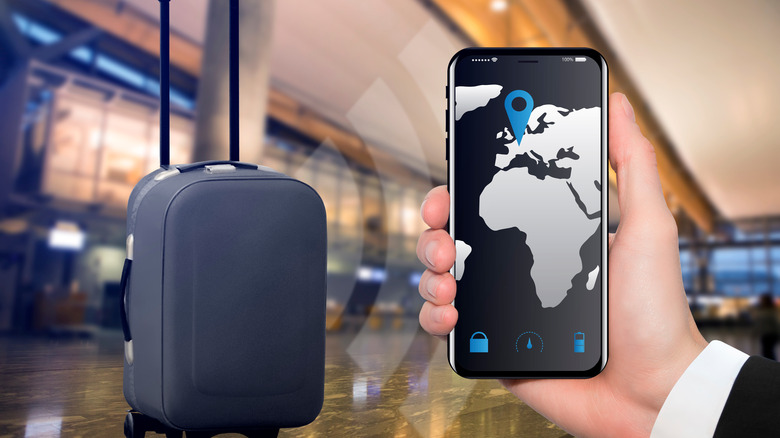What Is Smart Luggage (And Is It Worth It)?
Over the last few years, entrepreneurial travelers and inventors have strived to create luggage that reduces some of the headaches involved with travel, such as dead phones, airline fees for oversized bags, and lost luggage. To help solve these problems, some forward-thinking companies have determined that our luggage simply isn't doing enough.
In short, "smart bags" are types of luggage capable of more than just carrying our stuff. These schooled bags have high-tech capabilities designed to make our travel smoother and safer. Featuring everything from electronic locks and portable Wi-Fi spots to charging hubs and GPS tracking, smart luggage is typically hard-shelled, modern-looking, and an enticing purchase for gadget-minded travelers.
But are smart bags actually worth it? For years, our dumb luggage didn't even know it could roll on wheels. Are smart bags the next big advancement since rolling luggage or just another why-fi gimmick in the land of gizmos and gadgets? Let's find out.
Smart bags offer a range of high-tech features
Smart bags are categorized as any type of luggage that utilizes a battery and circuit board to perform its various functions (other than carrying things). And to be honest, some of these functions sound pretty cool, especially when considering the aforementioned headaches related to travel.
In some combination of functions, smart bag capabilities may include locking and unlocking your bag via Bluetooth, tracking your bag utilizing GPS location, weighing your luggage using electronic scales, and charging your electronic devices via USB ports. Some smart bags also feature solar-charging capabilities, Wi-Fi hotspots, and RFID-blocking liners for enhanced security.
While the prospect of tracking, charging, and protecting your belonging while you travel is enticing, smart bags do carry one glaring problem with them. Since most smart bags operate on lithium-ion batteries, you probably won't be allowed to check your bags unless you remove the bag's battery.
Smart bags could be on the no-fly list
Lithium-ion batteries are known to be fire hazards, and in 2018, both the International Air Transportation Association and U.N. International Civil Aeronautics Organization recommended that airlines no longer store lithium-ion batteries in the cargo hold of planes. Following this recommendation, the TSA quickly banned smart bags with non-removable lithium batteries.
So, if you choose a smart bag (and want to fly), make sure you purchase one that complies with TSA's removable battery regulation. But remember, while it's checked, your bag is now dumb again, so you probably won't have GPS tracking capabilities any longer. If your luggage is lost due to mishandling, you'll need to revert to the lo-fi basic methods of locating your bag. An alternative would be to place a tracker into your luggage that doesn't run on batteries, which now replaces one of the reasons to own a smart bag.
Some companies are now creating smart bags that run on regular batteries, and although these bags aren't rechargeable, they do provide some of the same functionality as lithium-powered smart bags. Depending on your affection for gadgetry, smart bags may be worth it, but since they can be a hassle through airports, smart bags are exactly reinventing the wheel of smoother travel.


